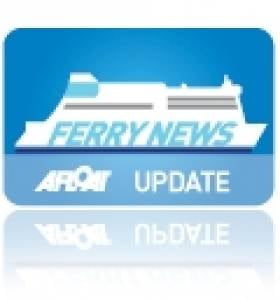Displaying items by tag: Labour Court
Ferry Operator Consider Court Finding
#FERRY NEWS – Senior managers in Stena Line are considering today the implications of a Labour Court recommendation that it increase redundancy terms for 39 workers at its Dún Laoghaire Harbour operation, the Irish Times reports.
The Labour Court rejected the workers' claim for automatic redeployment from the Dún Laoghaire service to Stena's Dublin Port – Holyhead route operation.
Stena's Dublin Port operation is managed by a subcontractor RoRo Services Dublin Ltd, which Stena said had no vacancies.
The ferry company has said the Dún Laoghaire -Holyhead service, which is now seasonal, will reopen in April, as previously reported on Afloat.ie. However, the company told the Labour Court there is currently no work for staff in the south Dublin port.
Workers who are members of SIPTU have been seeking redeployment to Dublin Port or enhanced redundancy payments.
However, while the Labour Court did recommend enhanced redundancy payments, the enhancement is less than that sought by the workers.
In previous redundancies at the company offered three weeks' pay per year of service, inclusive of statutory redundancy. In addition, they had received ex-gratia payments of €18,000 plus an additional €500 per year of service. The Labour Court recommended the €500 per year of service payment should be increased to €1,050 per year of service.
The Labour Court recommended that the company confirm staff in Dún Laoghaire would be given first call on jobs when the Dún Laoghaire service resumes in April.
A Stena spokesperson said senior management at the company were considering the recommendation and would make a statement later in the day.





























































